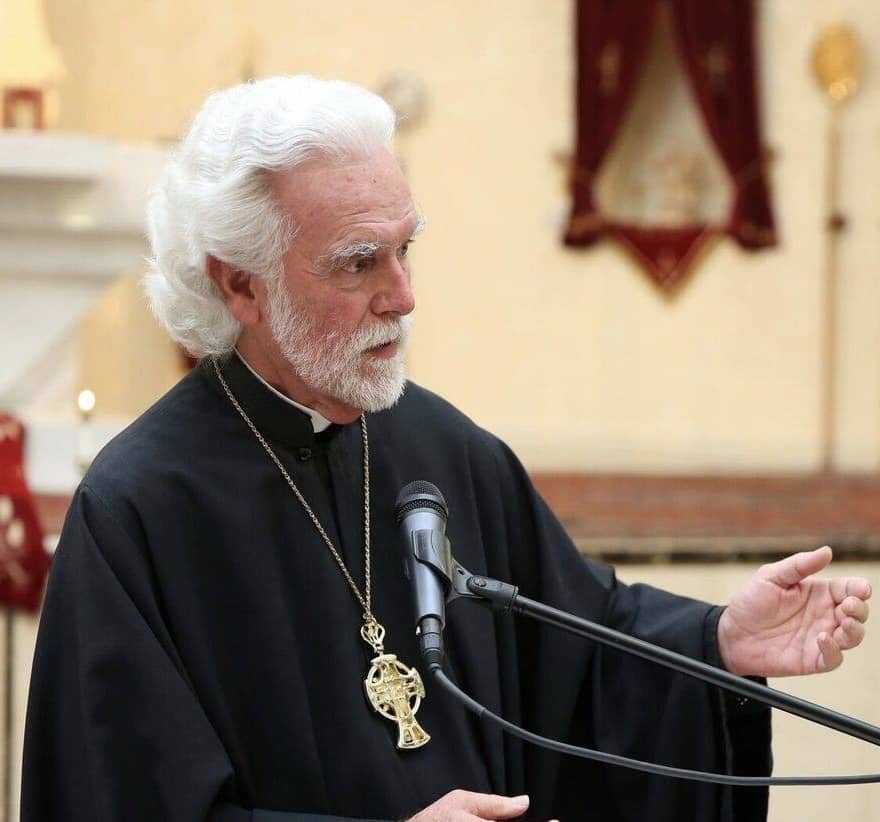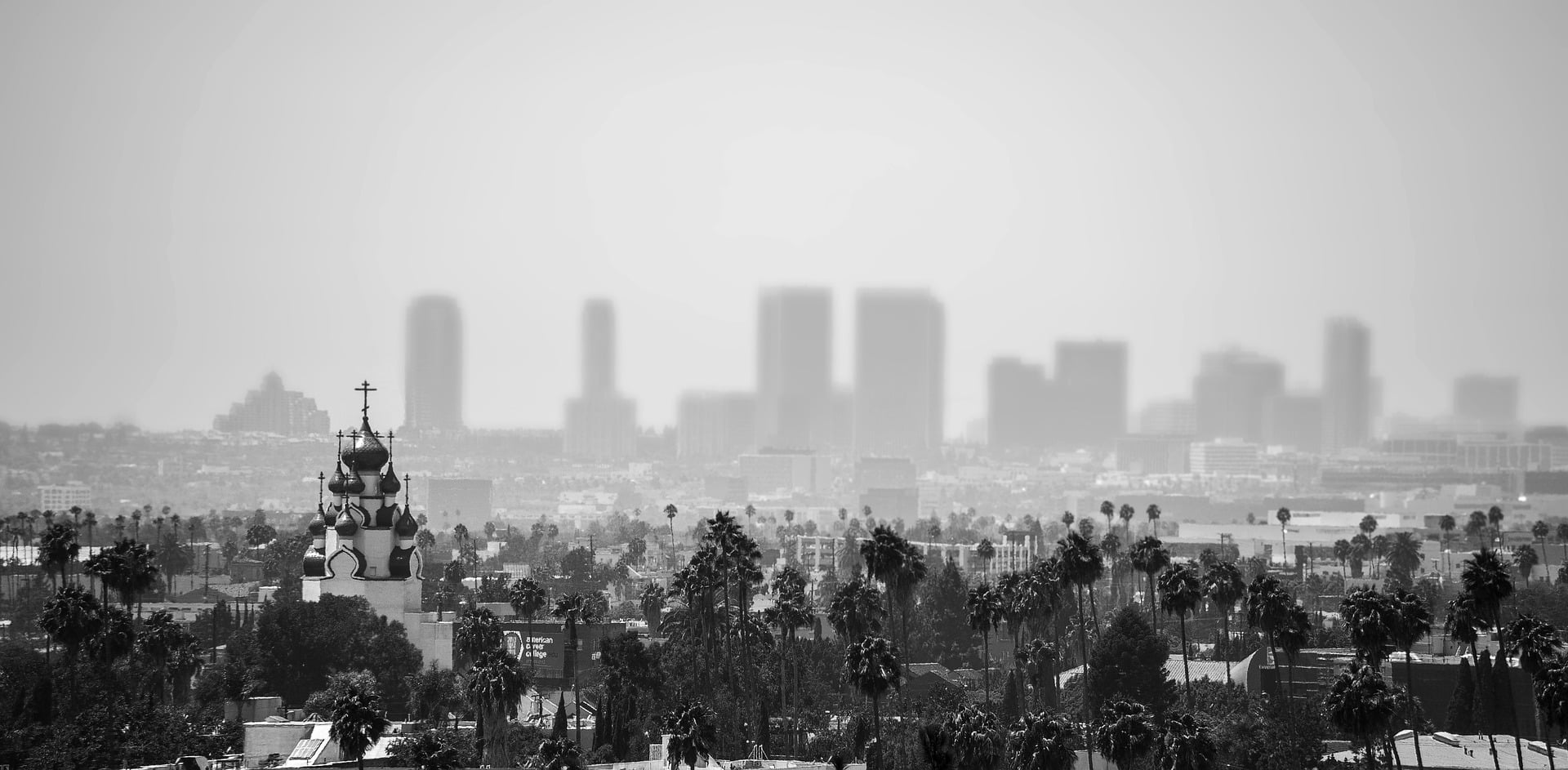January 11, 2021

On the 1st of November, I observed the 20th Anniversary of a rather unique appointment: on that day in the year 2000 I was appointed Ecumenical and Interreligious Officer of the Archdiocese of Los Angeles, the largest Roman Catholic Archdiocese in the United States. I was then – and remain so now – the only Greek Catholic priest serving in such a capacity in any Roman Catholic Diocese in the United States.
It was not a position I sought – in fact I tried to disqualify myself, citing lack of educational background. But the Cardinal Archbishop at the time wouldn’t hear of it. I requested time to think and pray about the appointment, and he agreed. Two days later, his secretary phoned me and told me the Cardinal wanted to know if I was finished praying and would be starting November 1st! I interpreted that as a sign I should accept the position, and have been immensely grateful over the last twenty years that I did!
What does the role involve? Basically, I direct the Catholic Church’s relations both with our fellow Christians (Ecumenical) and with other world religions (Interreligious). We approach the two with different goals in mind.
As you are aware, the goal of our ecumenical endeavors is to heal the fractured body of Christ. We do this both by bilateral dialogues with the various Christian denominations as well as by what Pope Francis terms “journeying together.” Speaking at the annual Week of Prayer Service for Christian Unity in 2016, Pope Francis said: “We must not wait. Unity is a journey we have to take, but we need to do it together. This journey involves ‘spiritual ecumenism’ – that is, praying together, and working together, doing works of charity together, teaching together, moving forward together.”
A few examples of how we do this in Los Angeles: Praying Together. When the Catholicos (Pope of the Armenian Apostolic Church) visited Los Angeles, the local Armenian Archbishop asked me if they could use the new Roman Catholic Cathedral for his Pontifical Liturgy (the Armenian Cathedral here had not been built at that time and they were going to use a secular location). I approached the Cardinal Archbishop, who readily approved, and that Liturgy was the first – and to this day only – non-Catholic Eucharistic Liturgy to be held in that Cathedral. I was honored to be invited to read the Epistle at that Liturgy. When the Armenian community here observed the 100th Anniversary of the Armenian Genocide, again they asked me if they could use the Roman Catholic Cathedral for this service, which again was readily granted. I annually attend their Archbishop’s Christmas Liturgy, and one year was invited to preach at it. For several years I also was asked by them to coordinate their annual Ecumenical Prayer Service in December.
Each year we observe the Annual Week of Prayer for Christian Unity with a special Prayer Service at various Christian Churches throughout our city; I am the one charged with organizing that service each year. The Archdiocese belongs to the Southern California Christian Forum, which seeks opportunities for broadening and deepening encounters among followers of Jesus Christ. I was elected its first Catholic President and have served in that capacity for several years now. We gather once a month – presently via Zoom – for an Ecumenical Bible Study and Prayer. The Forum also sponsors a local level of the Faith and Order Commission of the National Council of Churches. Here a deeper level of theological discussion takes place based on documents issued by the World Council of Churches and the Pontifical Council for Promoting Christian Unity. The results of those discussions are then shared with the judicatory heads of the various churches participating.
Los Angeles is one of the few Archdioceses that have maintained an Evangelical/Pentecostal/Catholic Dialogue. Over the years we have explored many aspects of Church life and beliefs. At the suggestion of the Evangelical and Pentecostal members of the dialogue, we spent a significant amount of time looking at the theological underpinnings for the Catholic Church’s call for comprehensive immigration reform. One of the most memorable experiences I have ever had was being asked by a group of Evangelical and Pentecostal pastors to join them at a Revival in the LA Coliseum: 93,000 people stood up and cheered when I, as a Catholic priest, greeted them simply as “their brother in Christ!”
We have also” journeyed” with our fellow Christians here by joining together to oppose the route of the annual LA Marathon which effectively closed hundreds of Churches on a Sunday. We also recently renewed our 25-year-old Covenant with the Episcopal Diocese of Los Angeles and the Evangelical Lutheran Synod, and jointly issued a statement urging people to register to vote in the 2020 Presidential Election.
Elected by my peers in other Dioceses, I served two terms as Vice President of the national Catholic Association of Diocesan Ecumenical and Interreligious Officers (CADEIO). I continue to represent that organization at Christian Churches Together, a budding Ecumenical movement which brings Catholic, Evangelical, Pentecostal, African-American, and Mainline Protestant Communions and Organizations in the USA to witness together to the reconciling power of the Gospel of Christ. Mount Saint Mary’s University engages me to teach a certification course on “Ecumenism and Interreligious Dialogue as a Catholic Ministry” and to provide seminars on similarly related topics. I also serve on the Boards of the Huffington Ecumenical Institute at Loyola-Marymount University, the Jewish Studies Program also at LMU, the Academy of Judaic, Christian, and Islamic Studies at UCLA, and the Guibord Center for Religion.
The Archdiocese is a founding member of the Interreligious Council of Southern California, for which I served as President for five years. We also belong to a number of other such organizations as well, such as the South Coast Interfaith Council and the Interfaith Solidarity Network. We have bi-lateral dialogues with the Hindus and Buddhists, and multi-level interactions with the Jews (Priest/Rabbi Dialogue, Catholic/Jewish Women’s Conference, educational programs in conjunction with the Anti-Defamation League and the American Jewish Commitee) and Muslims (Catholic and Muslim Women in Conversation). I also serve as regional co-convener of the Western Region Muslim-Catholic Dialogue for the US Conference of Catholic Bishops.
Twice now I have been asked by the Pontifical Council for Interreligious Dialogue to bring some of my Buddhist colleagues to the Vatican for a Dialogue of Fraternity, where we agreed to not only speak about theological issues but to engage in some social justice work as well. When we met with Pope Francis in 2015, he told us it was “healthy” for people of different religions to work together for the common good. I have taken his words to heart. Buddhists and Catholics here agreed to try to do something together to ease the suffering of the homeless population in Los Angeles and to work together to implement Pope Francis’ encyclical Laudato Si on the environment. We have been able to partner the local Saint Vincent de Paul Society with their Buddhist equivalent, the Tzu Chi Foundation, and these two organizations are working together beautifully to help alleviate the needs of the homeless. Buddhist representatives and I also participated in the Parliament of the World’s Religions in 2018 jointly giving a workshop on Laudato Si.
Each year, around the anniversary of the Roe vs Wade Supreme Court Decision, the Archdiocese conducts a Requiem for the Unborn, which is our Annual Respect Life Mass and Ceremony of Light. I invite representatives of the various religions – both Christian and Non-Christian – who share our position on the sanctity of human life to attend. At the beginning of the Mass, I introduce them to the 3000 people in attendance by name and faith affiliation. It is a perfect example of different and diverse religions putting aside theological differences and standing together on an issue where we agree.
Although I initially deterred at accepting this position, I am eternally grateful to the Holy Spirit for guiding me to accept it: it has made a major transformation in my life.
Father Alexei was ordained a Melkite Greek Catholic priest in 1987 and assigned to Saint Andrew Russian Greek Catholic Church and Saint Paul Melkite Greek Catholic Mission in El Segundo, CA, where he continues to serve.

